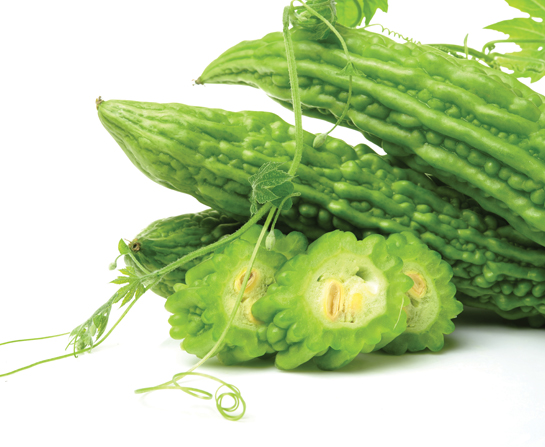Bitter’s Good!
May 1, 2022 Return


Professor Gerard Bodeker Chairman, Global Initiative for Traditional Systems of Health, Oxford Project Southeast Asia, University of Oxford
Malaysians may know it as peria, foo kwa or pakarkai, but no matter what we call the bitter gourd, it features prominently in many of our beloved dishes. The bitter gourd (Momordica charantia), sometimes called bitter melon, has long been said to have medicinal benefits as well. Thanks to research, we now know that the bitter gourd may be beneficial for people with diabetes.
Bitter yet nutritious
Prof Gerard Bodeker points out that there are over 200 studies published so far to illustrate the medicinal and nutritional benefits of the bitter gourd.
- Iron power! Bitter gourd is rich in iron, along with other minerals such as calcium and phosphorus. Among its many roles in our body, iron is important to promote healthy levels of red blood cells.
- Lots of beta-carotene. Bitter gourd has twice the amount present in broccoli, and beta-carotene is used by our body to produce vitamin A. Beta-carotene is also said to have possible beneficial effects in asthma management, cholesterol control and the reduction of risks of certain cancers. It may also decrease the rate of sunburn in people with sensitive skin.
- Twice the calcium and potassium. Mention calcium-rich food and the first thing that crosses your mind may be spinach. Mention potassium-rich food and you think of bananas. In truth, bitter gourd contains twice as much calcium compared to spinach and twice as much potassium compared to a banana! Popeye should have been eating bitter gourds rather than spinach!
How about diabetes?
One of the traditional medicinal uses of bitter gourd is to treat people with Type 2 diabetes. Prof Bodecker says that there are at least 3 active substances in bitter gourd said to have anti-diabetic properties:
- Charantin, which lowers blood glucose level by increasing glucose uptake by the cells for conversion into glycogen. Hence, it helps lower the amount of blood glucose.
- Vicine and insulin-like compound called polypeptide-P can also lower blood sugar levels.
- A protein called lectin that is said to act similarly to insulin, to lower blood glucose level and suppress appetite.
To date, we have yet to discover any conclusive evidence to back up the medicinal uses of bitter
for type 2 diabetes, but it will be interesting to find out what research may discover in the future.

In the meantime, as we practice a healthy diet and exercise regularly, why not add some tasty bitter gourd to our meals?
If you like this article, do subscribe here.
